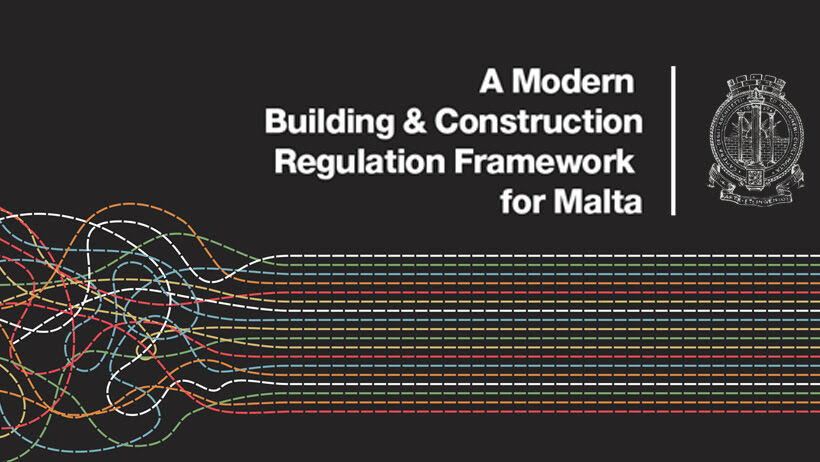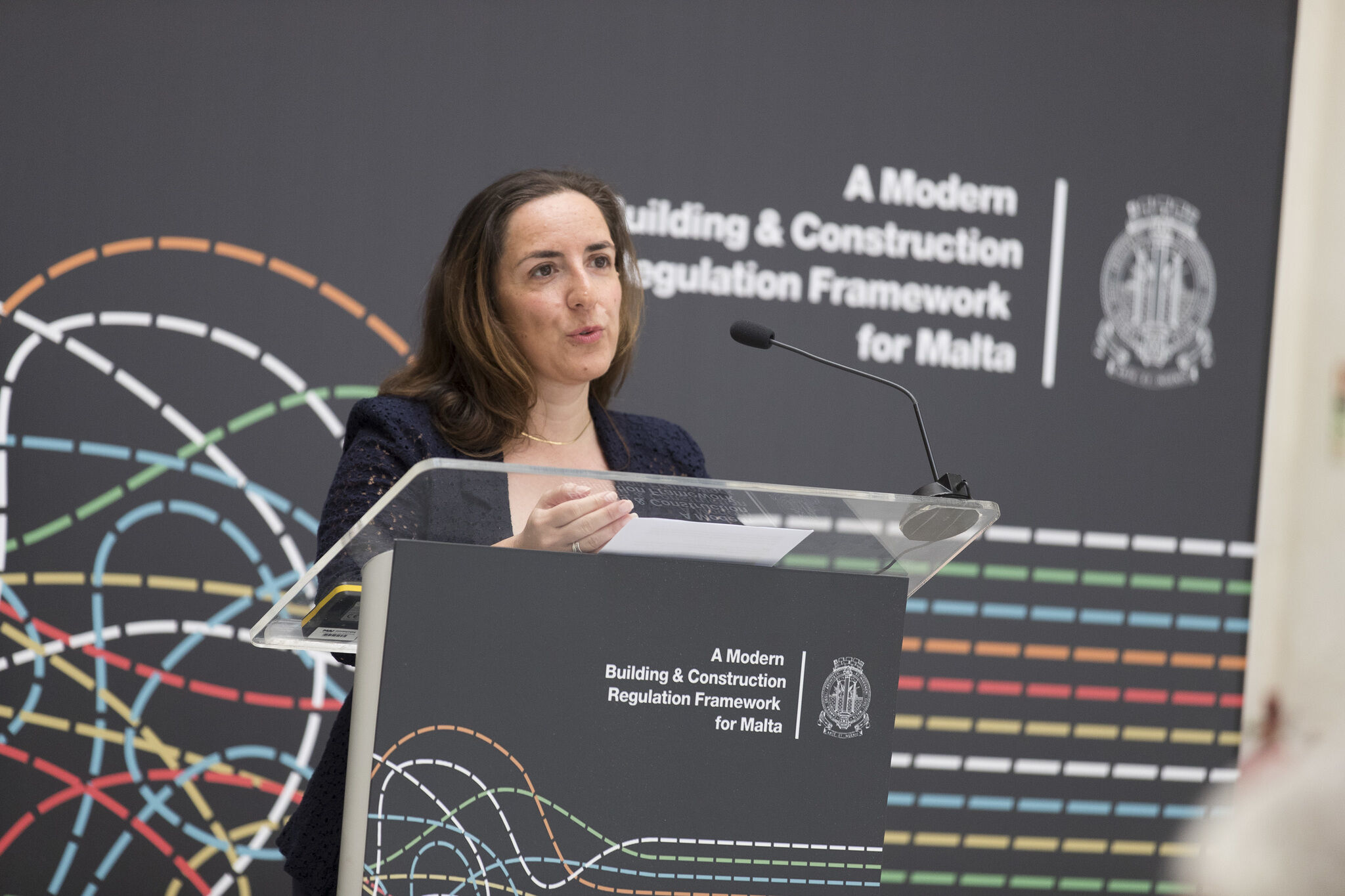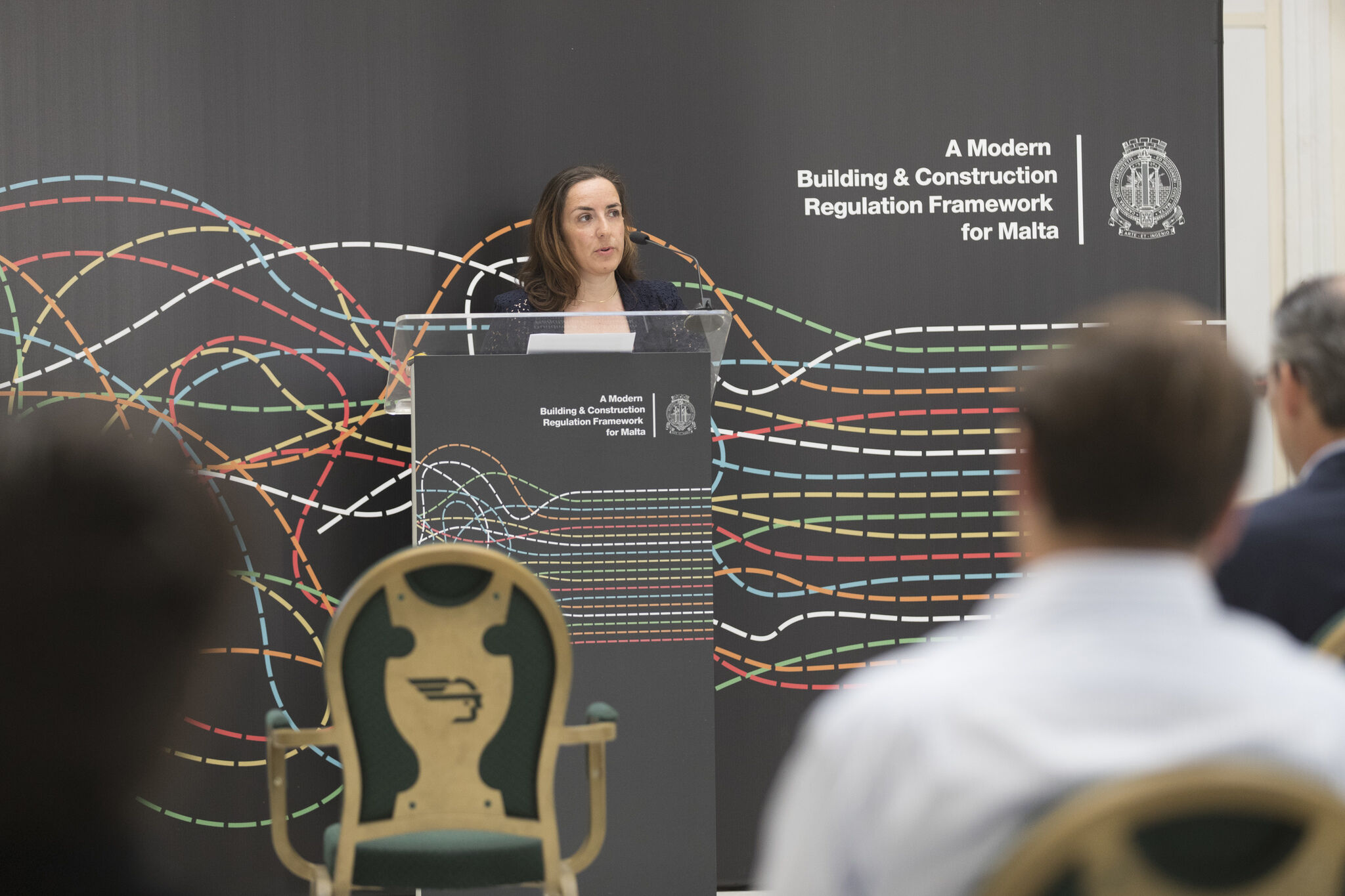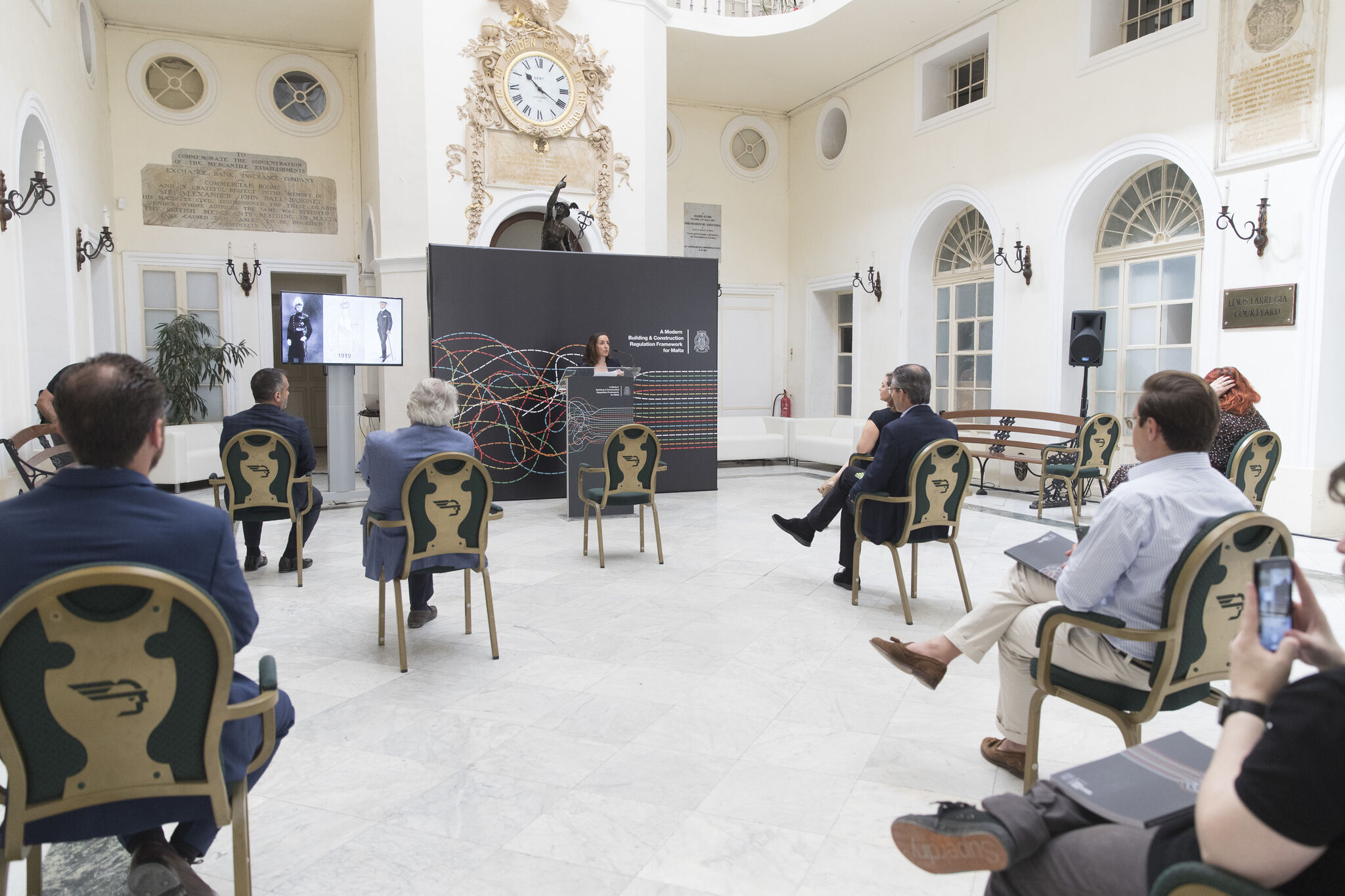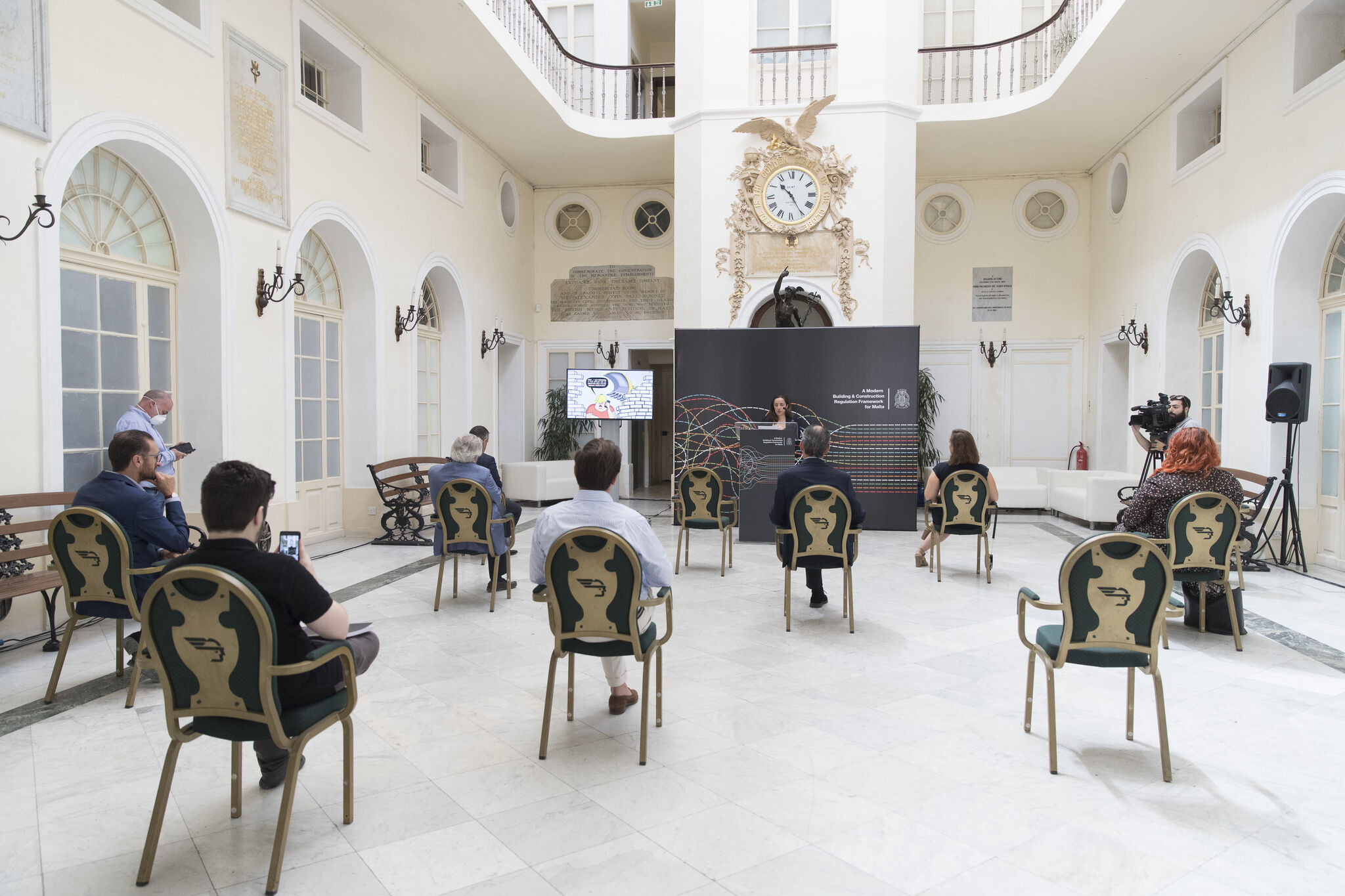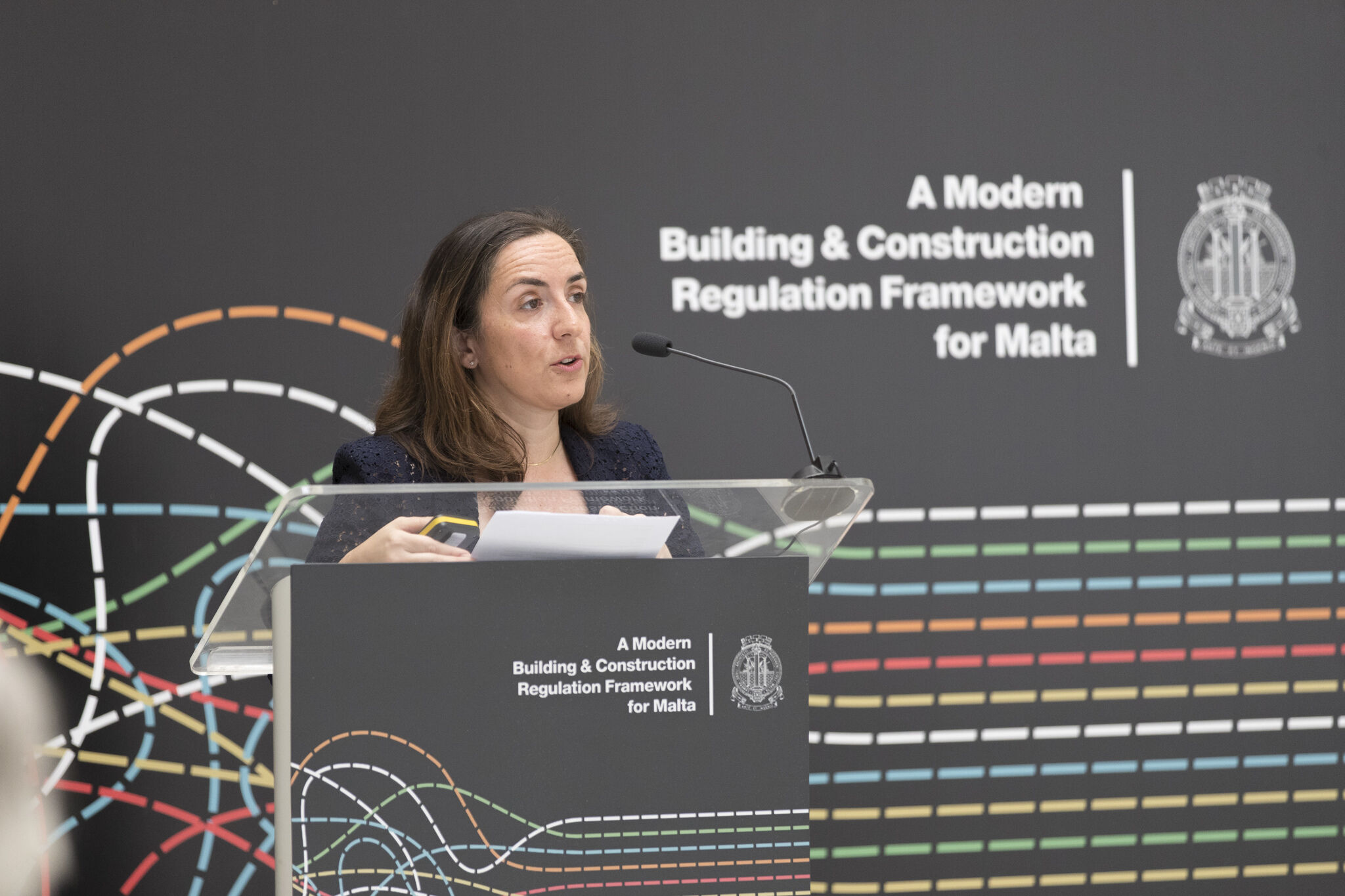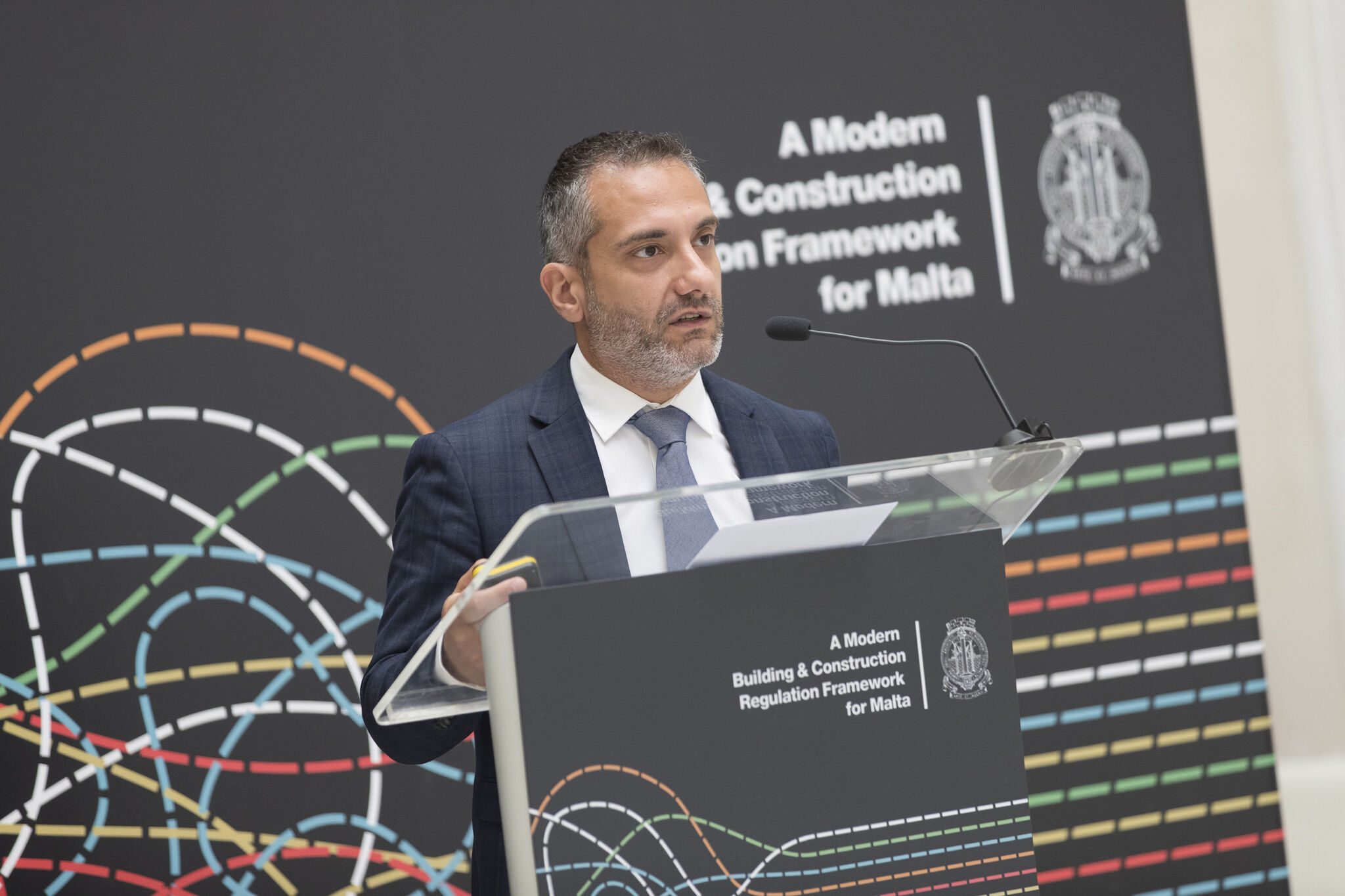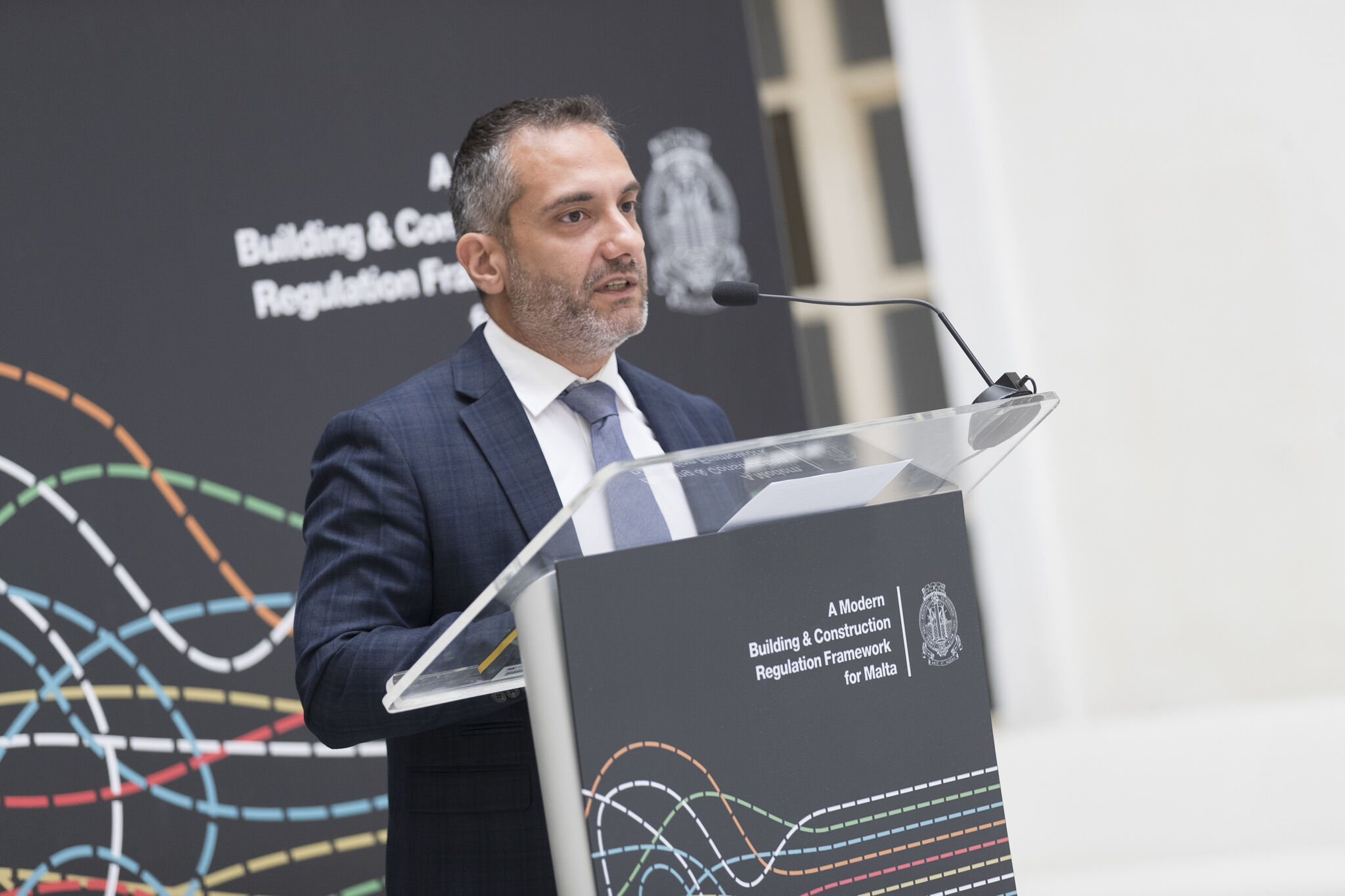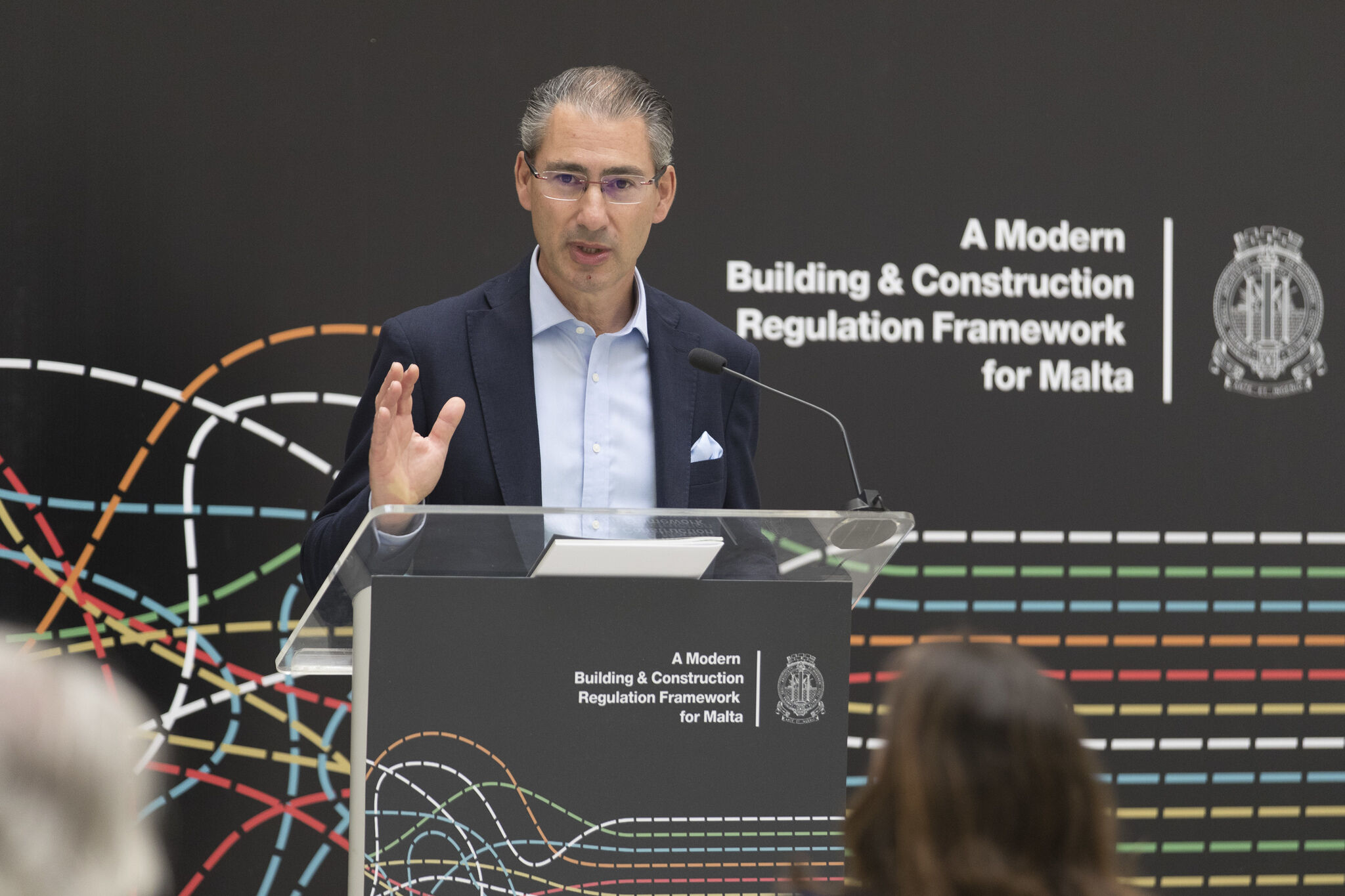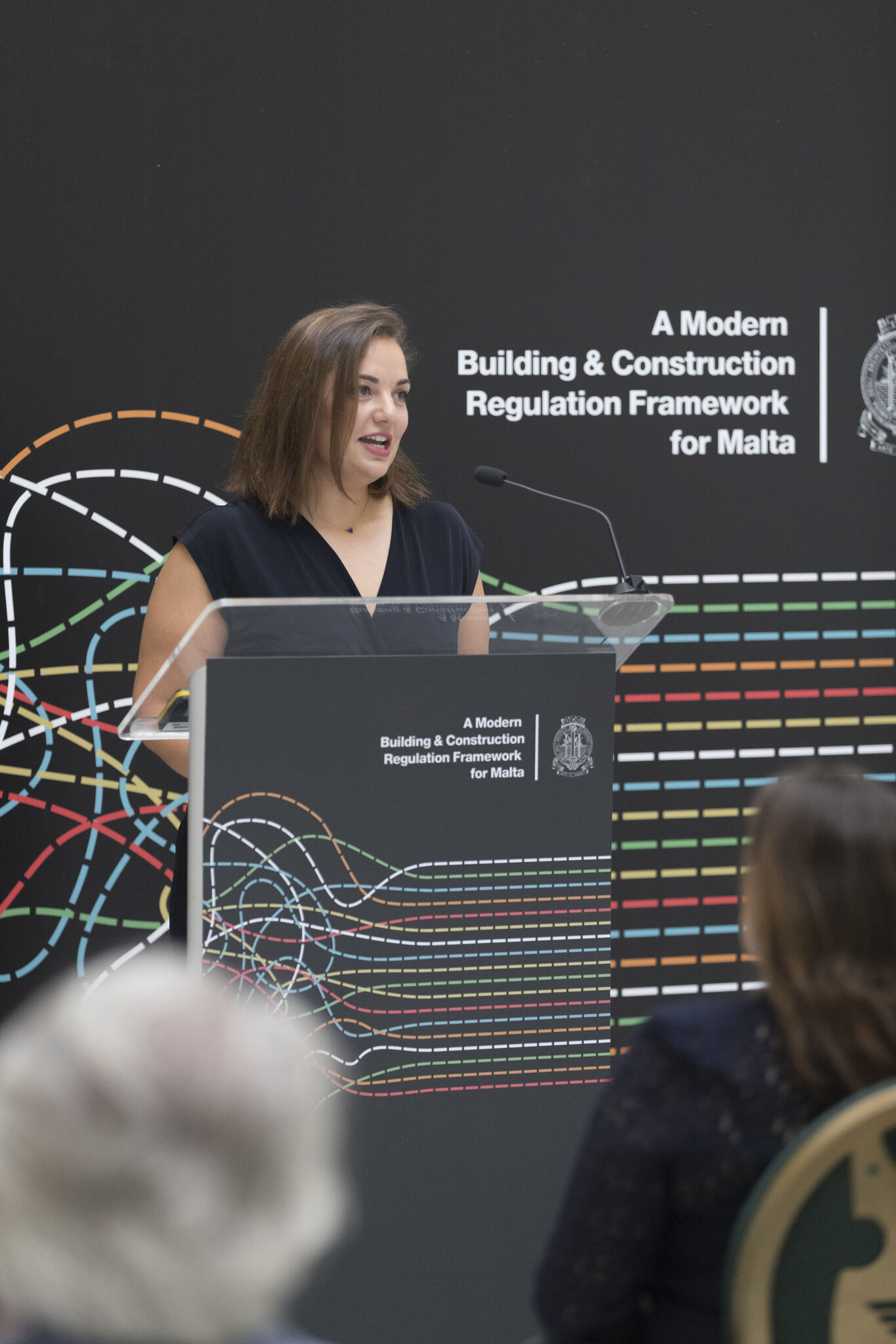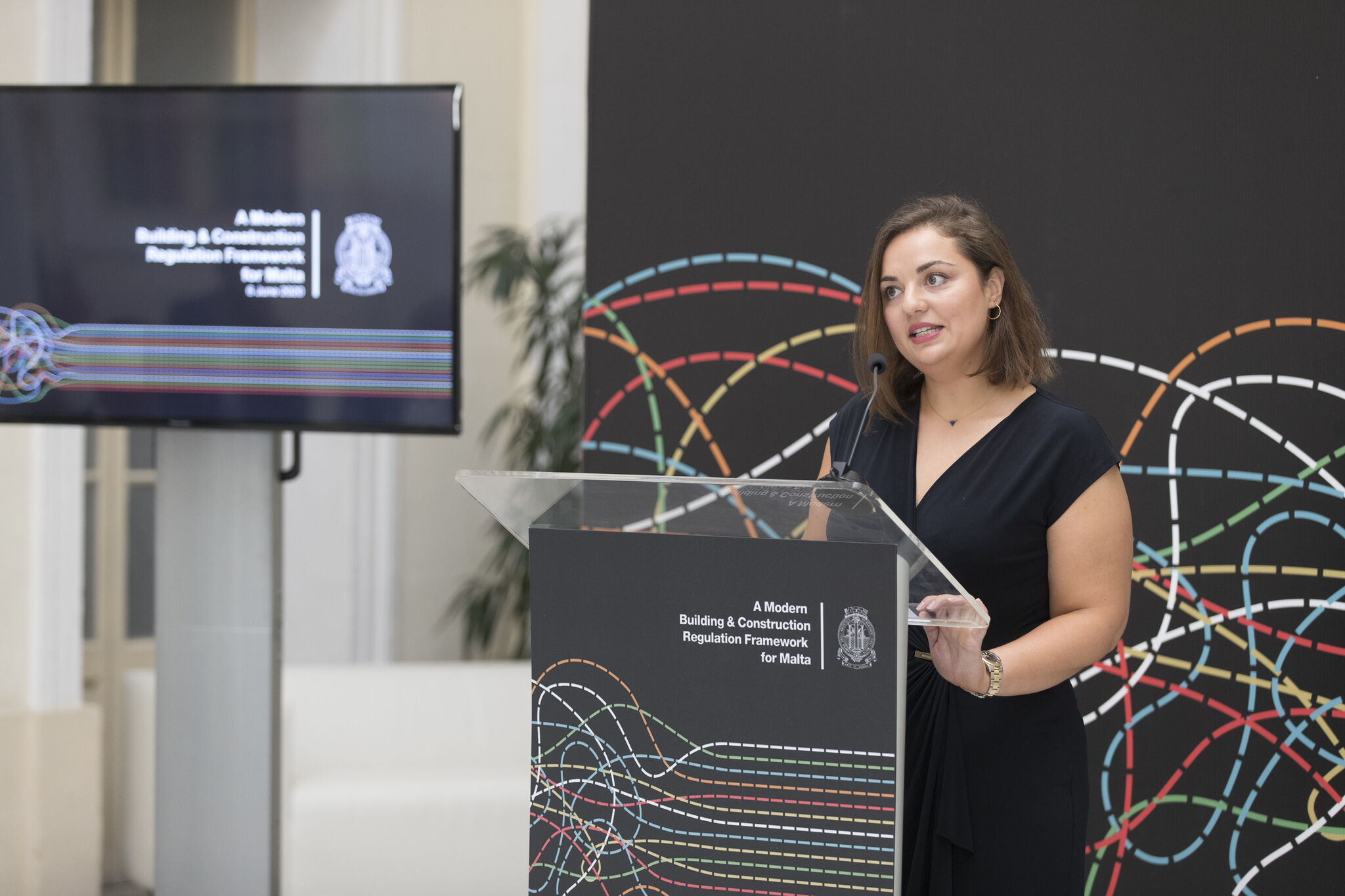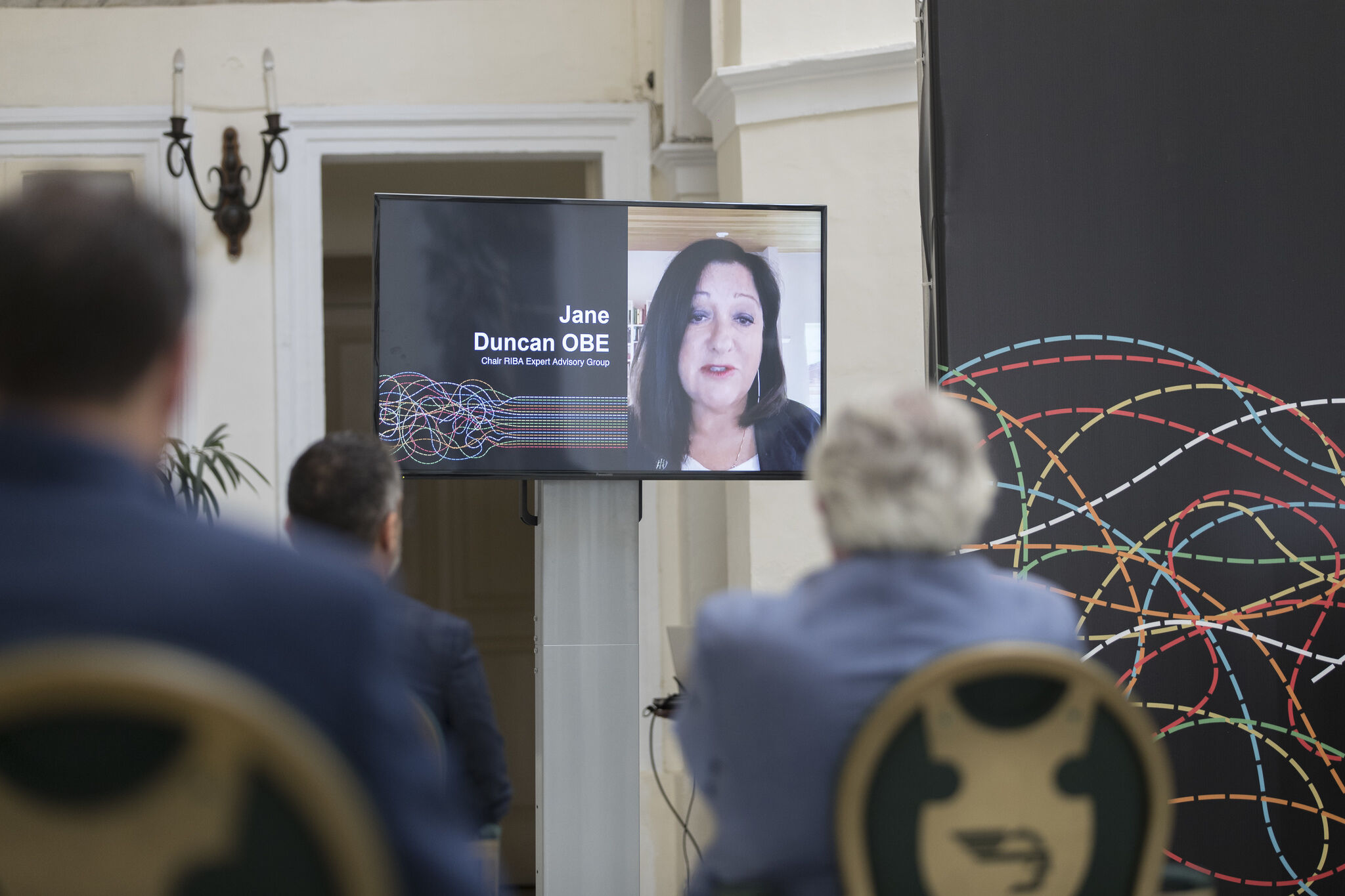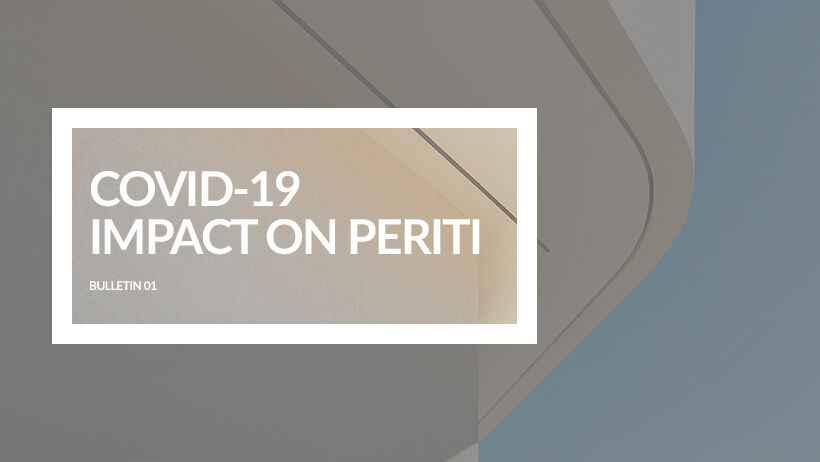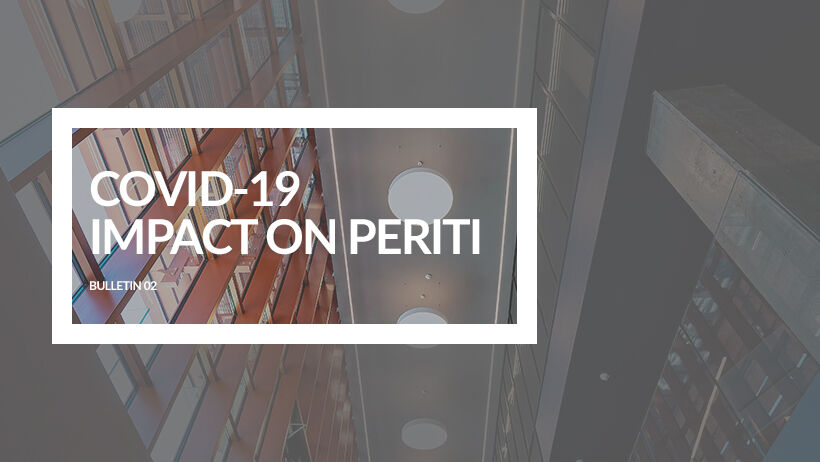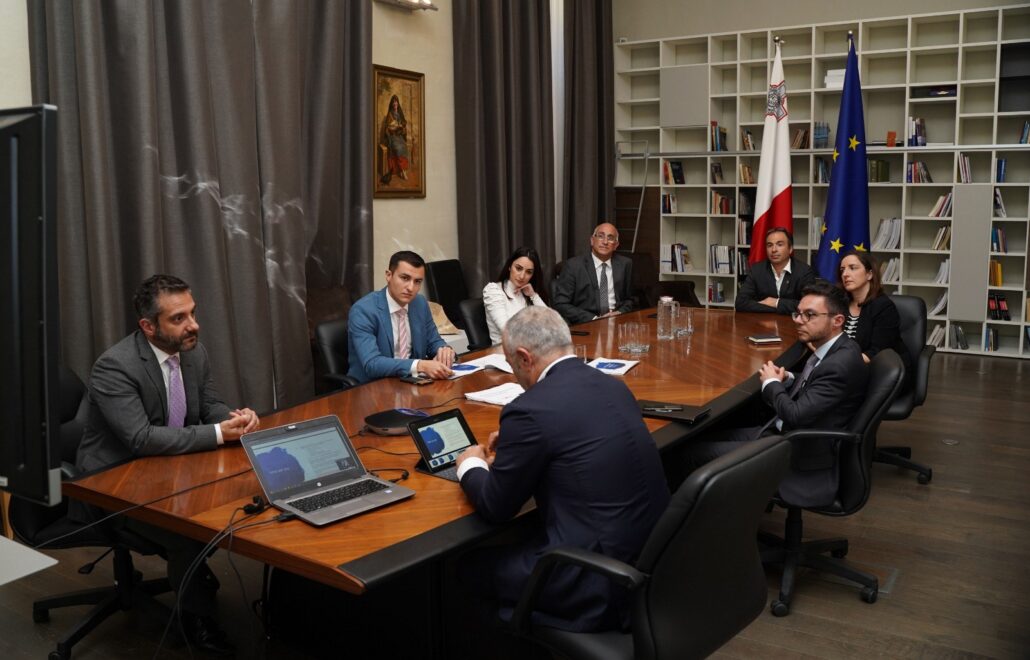Posts
PR 10/20 | No time for further delay
This morning, yet another worker lost his life on a construction site following the collapse of a wall within the site. While the details of the incident are still emerging, one thing is amply clear: the construction industry is rife with systemic and fundamental deficiencies that must be addressed without further delay.
While the Kamra tal-Periti is fully cognisant of Government’s efforts in the past months to draft legislation that will bring about the much needed changes, it is evident that the lack of focus and resources is severely hampering progress in this respect. The outcome of the recommendations by the Committee appointed by the Prime Minister have still to be made public, and despite several lengthy meetings with the various stakeholders in the industry we are still far off from seeing significant results.
This situation is no longer tenable. Further delay is not an option.
On its part, after urging successive governments to bring about significant changes to the industry since 2007, the Kamra tal-Periti had published its draft proposals for A Modern Building and Construction Regulation Framework in May 2019. These were presented to all industry stakeholders, including the Chamber of Engineers, the Chamber of Commerce, the Building Industry Consultative Council, the Building Regulation Board, the Building Regulation Office, the Building and Construction Agency, the Planning Authority, the Malta Developers Association, and the Malta Insurers Association. All these entities and organisations endorsed the Kamra’s proposals and there is therefore industry-wide consensus that such proposals are both necessary and desirable.
The proposals were also presented to the European Commission and the Opposition, as well as to Government which, through a Letter of Commitment issued in August 2019, finally recognised the need for a comprehensive reform of the building and construction industry, and committed itself to implement the Kamra’s proposals.
After having taken on board all the feedback received, the Kamra tal-Periti published the final version of its proposals in June, and were positively received by the industry.
The Kamra tal-Periti urges the Prime Minister and the Ministers responsible for the industry in all its aspects to fulfil Government’s commitments of last August without further delay. It is unacceptable that a country which aspires to portray itself as “the best in Europe” remains complacent to these tragedies which have become all too common. The country deserves better.
CIR 15/20 | Breach of Legal Notice 136 of 2019 – Site Technical Officer fraud
It has come to the Kamra’s attention that a person who is not qualified to take on the role of Site Technical Officer has, on a number of occasions, presented himself to Permit Holders as being qualified to take on such role and subsequently signed the Site Responsibility Form, which was then unwittingly uploaded by the periti responsible for the respective projects.
After being alerted to this matter, the Bulding and Construction Agency (BCA) advised such person that this was unacceptable. Said person, however, persisted in trying to defraud the system by presenting Permit Holders with Forms apparently signed by, to our knoweldge, at least two different periti, however it later transpired that such periti had not signed such Forms, and that their signatures had been copied and used without their consent. This latter fraudulent action has been reported to the BCA for the necessary action to be taken.
Periti are reminded that:
- Only persons who have been authorised by the BCA to provide the service of STO should be indicated on the relevant Forms – the list of registered persons is updated regularly and may be viewed here;
- According to Legal Notice 136 of 2019, as amended, the Site Technical Officer shall be “nominated by the contractor and shall be accepted by the perit in charge of the project”, and that as part of its discussions with Government, the Kamra had only agreed to the requirement for periti to “accept” the STO as long as a list of registered persons is published and regularly maintained – refer to point 3.1.2 of the Letter of Commitment which Government presented to the Kamra in August 2019, and further elaborated in Ciircular 14/19.
In view of this situation, it is recommended that periti go through their active projects and ensure that the appointed STOs are in fact indicated on the STO register, and that such persons are aware of being indicated in this role. In case of any anomalies, periti are requested to immediately inform the BCA, copying the Kamra tal-Periti, for further action.
The Council cannot stress enough the importance of adherence to legislation, in view of the serious consequences that may arise in cases of incidents on construction sites.
Yours sincerely,
Simone Vella Lenicker
President
CIR 14/20 | COVID-19 Pandemic: Lifting of restrictions // Update 7
By means of Legal Notice 232 of 2020, Government repealed a number of Legal Notices published during the pandemic, including the Protection of Vulnerable Persons Order, 2019.
In view of this, Directive 11/20 regarding Vulnerable Individuals & Site Inspections is hereby repealed.
Although certain restrictions have been released, it is noted that the pandemic has not yet been declared to be over, and therefore certain measures should still be implemented, particularly those relating to social distancing. Reference is here made to Circular 13/20, which presents various recommendations that may be followed as applicable.
Meanwhile, kindly note that the Occupational Health and Safety Authority (OHSA) has issued a document entitled ‘COVID-19 and your Workplace: FAQs’, which brings together the most frequently asked questions regarding COVID-19 and workplaces.
Yours sincerely,
Simone Vella Lenicker
President
PR 08/20 | A Modern Building and Construction Regulation Framework
In May 2019, the Kamra tal-Periti had published its draft proposals for A Modern Building and Construction Regulation Framework. These were presented to all industry stakeholders, including the Chamber of Engineers, the Chamber of Commerce, the Building Industry Consultative Council, the Building Regulation Board, the Building Regulation Office, the Building and Construction Agency, the Planning Authority, the Malta Developers Association, and the Malta Insurers Association. All these entities and organisations endorsed the Kamra’s proposals and there is therefore industry-wide consensus that such proposals are both necessary and desirable.
The proposals were also presented to the European Commission and the Opposition, as well as to Government which, through a Letter of Commitment issued in August 2019, finally recognised the need for a comprehensive reform of the building and construction industry, and committed itself to implement the Kamra’s proposals.
After having taken on board all the feedback received over the past 12 months, the Kamra tal-Periti has now published the final version of its proposals. These are focused around ten main principles, namely:
- The separation of planning permit and building permit processes;
- Clear well-organised regulatory processes designed to promote public safety and quality, in the interest of the consumer, rather than being focused on ascribing blame post-accident;
- Clear distinction between the regulations governing building (the permanent works) and those governing construction processes and temporary works;
- The proposed Building and Construction Authority (BCA) is to take on the consolidated role of the assessment of buildings, building authorisations, enforcement, and monitoring of the construction processes, with the 22 public entities hitherto entrusted with the different areas of interest, becoming key stakeholders in the drafting of regulations and guidance documents;
- Major projects and public buildings to be subjected to an independent review, particularly in terms of structural design and fire engineering through the introduction of a new professional figure (Engineering Auditor);
- Contractors are to have the specific skills required, and to be classified and licensed according to such skills – they will be solely responsible for the process of construction, including temporary works, and would therefore have full possession of construction sites for the duration of the works;
- The enforcement of construction regulations to be delegated to private service providers – referred to as Building and Construction Inspectors (BCIs) – licensed by the BCA;
- Contractors to be required to certify that the executed works comply with the design instructions, and with the requirements of the Construction Products Directive;
- The construction phase will be concluded by the issuance by the BCA of a Compliance Certificate, which, inter alia, authorises that the building can be brought into use; and
- Post-occupancy checks and audits to be undertaken as predetermined by the BCA to ensure the continued compliance of the structure with building regulations.
The launch of these proposals is not the end of a process. It is the beginning of a new era in the building and construction industry. COVID-19 has highlighted the lack of sustainability of our previous ways – now is the perfect opportunity to look to the future with a new vision … a vision that is more sustainable, that still focuses on economic progress but that places more emphasis on safety and quality.
The Kamra tal-Periti is fully committed to ensure that these proposals are implemented and assures Government of its full cooperation in achieving this leap forward, bringing the industry firmly and squarely into the 21st century.
Scroll through gallery
CIR 13/20 | COVID-19 Pandemic: Site inspections and site operating procedures // Update 6
At the outset of the coronavirus pandemic, periti were among one of the first groups of economic operators to adapt their working practices in so far as their offices are concerned. In a survey carried out by the Kamra tal-Periti in the beginning of March, periti reported to have already implemented various social distancing measures, including the cancellation of non-essential meetings and subsequently the introduction of video conferencing, sanitisation of their office environment, and in 56% of cases the introduction of remote working.
While periti have a significant amount of control over their office environment, the same cannot be said for construction sites, and in situations where periti are required to inspect occupied properties for varied reasons.
The following are some practical guidelines to be followed in order to minimise the risks of contraction of COVID-19. These have been approved by the Health Authorities.
Inspections of occupied residential properties
It is recommended that prior to inspecting an occupied residential property, the owner / client / tenant is requested to:
- Declare that none of the occupants of the property returned from overseas during the 20 days prior to the date of inspection;
- Declare that none of the occupants of the property have contracted the COVID-19 virus and are under mandatory quarantine as imposed by the relevant Authorities;
- Declare that none of the occupants of the property are under mandatory quarantine for any other reason as imposed by the relevant Authorities;
- Declare that none of the occupants of the property are aware of having been in contact with a person who has contracted the COVID-19 virus during the 20 days preceeding the date of inspection; and
- Declare that none of the occupants of the property fall under any of the categories of vulnerable persons as detailed in Legal Notice 111 of 2020 – if the latter is not the case, the procedures set out in Circular 11/20 are to be followed.
It is also recommended that periti request that, on the date of inspection, the owner / client / tenant ensures that:
- There is not more than one person present in the property;
- All doors and windows are opened prior to the inspection to allow full access to the property without needing to touch any surfaces;
- A distance of 2m is maintained at all times.
Inspections of occupied commercial properties
The measures to be applied will depend on the nature of the property in question, its size, density of occupation and also on the purpose of the perit’s inspection. In general, however, it is recommended that prior to inspection the owner / client / tenant is requested to:
- Declare that none of the regular occupants of the property have returned from overseas during the 20 days prior to the date of inspection;
- Declare that none of the regular occupants of the property have contracted the COVID-19 virus and are under mandatory quarantine as imposed by the relevant Authorities;
- Declare that none of the regular occupants of the property are under mandatory quarantine for any other reason as imposed by the relevant Authorities;
- Declare that none of the regular occupants of the property are aware of having been in contact with a person who has contracted the COVID-19 virus during the 20 days preceeding the date of inspection; and
- Declare that none of the regular occupants of the property fall under any of the categories of vulnerable persons as detailed in Legal Notice 111 of 2020 – in such case the inspection should not be carried out unless the presence of the person concerned is absolutely essential, and then only after having followed the procedures outlined in Circular 11/20.
For the purposes of the above, a “regular occupant” is considered to be an owner or employee or consultant or client or service provider or any other person who regularly accesses the property, and who has visited the property during the 15 days prior to the date of inspection.
It is also recommended that periti request that, on the date of inspection, the owner / client / tenant ensures that:
- The number of people present in the property is kept to the bare minimum essential for the inspection to be carried out;
- All doors and windows are opened prior to the inspection to allow full access to the property without needing to touch any surfaces;
- A distance of 2m is maintained at all times.
Construction site inspections and meetings
In the case of construction sites, it is recommended that declarations similar to the ones outlined above are obtained from the contractor/s with regard to their workforce. These may include:
- Declaration that none of the personnel present on site have returned from overseas during the 20 days prior to the date of inspection;
- Declaration that none of the personnel present on site have contracted the COVID-19 virus and are meant to be under mandatory quarantine as imposed by the relevant Authorities;
- Declaration that none of the personnel present on site are meant to be under mandatory quarantine for any reason as imposed by the relevant Authorities;
- Declaration that none of the personnel are aware of having been in contact with a person who has contracted the COVID-19 virus during the 20 days preceeding the date of inspection; and
- Declaration that none of the personnel fall under any of the categories of vulnerable persons as detailed in Legal Notice 111 of 2020 – in such case the inspection should not be carried out unless the presence of the person concerned is absolutely essential, and then only after having followed the procedures outlined in Circular 11/20.
In the case of sites where regular inspections are carried out, it may not be feasible to require these declarations prior to each and every inspection. It is recommended that the declaration is requested initially, and that the contractor/s is/are requested to inform the perit, the owner and the Project Supervisor immediately upon registering any change to the declarations. Periti may request a declaration at regular intervals, for example once a month.
In addition, it is recommended that:
- Only personnel who are absolutely necessary for the site inspection to be carried out are present on site at the time of inspection
- Attendees should maintain a distance of 2m from each other
- Rooms should be well ventilated and windows opened to allow fresh air circulation
- Wherever possible, meetings should be held outdoors
Construction site operating procedures
It is also important that the welfare of all personnel on sites is catered for at all times. This may be easier to achieve on larger sites, where contractors may be better equipped to provide certain facilities. Nevertheless it is recommended that all contractors are encouraged to implement as many measures as possible on their sites in order to minimise as much as possible the risks of exposure.
The Kamra tal-Periti has prepared a guidance note – Site Operating Procedures | Guidelines for construction sites during the COVID-19 pandemic. This is based on various recommendations by international organisations, and has also been presented to the local Health Authorities.
It is recommended that periti forward this document to their clients, and to the contractor/s and Project Supervisors appointed on the site which fall under their responsibility, and that these are encouraged to implement these measures for the safety of all.
General measures
In addition to the above, the following guidance documents issued by the local Health Authorities are being referred for your perusal:
- Visits at homes
- Guidance on hand sanitisers
- Guidance on hand washing and the use of gloves
- Recommended measures for places of work
- Occupational health and safety measures
Furthermore, it is recommended that periti wear community masks while carrying out their duties as outlined above, in addition to the standard PPE, and that they use sanitiser whenever necessary.
Yours sincerely,
Simone Vella Lenicker
President
DIR 11/20 | COVID-19 Pandemic: Vulnerable Individuals & Site Inspections
The Kamra tal-Periti is hereby giving notice to all members of the profession of a Directive that has been approved by the Council with regard to:
- Periti considered as Vulnerable Individuals;
- Third parties considered as vulnerable individuals; and
- General provisions regarding site inspections and travel between the Islands.
Directives 08/20 and 09/20 are hereby repealed, and replaced by this Directive.
This Directive has been endorsed by the Superintendent of Public Health
1. Periti considered as Vulnerable Individuals
Note: This part of the Directive is practically identical to that previously covered by Directive 08/20, except for the new procedure in Point (iii) and some amendments to the notification forms.
Vulnerable individuals, as defined by Legal Notice 111 of 2020, are prohibited from leaving their residence except for certain essential needs.
In view of such restrictions, and until further notice, periti in the above categories are to immediately notify their clients of the restrictions imposed on them. In addition periti affected by these restrictions are to follow the procedures outlined below.
- For all works where the closure of the construction site[1] does not pose any risk of danger or damage to the site itself or adjacent third parties[2], immediately submit a Notification COVID-19 KTP-01 (Vulnerable persons)_no risk using the template provided.
- For all works where the closure of the construction site poses a risk of minor damage to the site and/or adjacent third parties, immediately submit a Notification COVID-19 KTP-02 using the template provided. In this case, the Developer[3] is to be notified to forward such Notification to all affected third parties. It is recommended that you advise the Developer and their appointed Contractor/s to also submit to their respective insurance providers.
- For works where the closure of the construction site poses a risk of significant damage to, and/or a risk to the structural stability of, the site and/or adjacent third parties, immediately submit a “Request for exemption from mandatory quarantine” from the Superintendent of Public Health, through this link. In the section titled “Applicant’s reason/s for request of exemption” state “as per enclosed declaration” and submit the form. Upon receving an acknowledgement, submit the Request for dispensation COVID-19 KTP 03_(Vulnerable persons)_risk to structural stability or significant damage using the template provided to covid19.sph.exemptions@gov.mt and to all the entities listed in the template. In this case, no works that require the direction of the perit are to proceed until the dispensation is issued from the Superintendent of Public Health, and thereafter works are to proceed strictly in accordance with the content of the request for dispensation. In this case, the Developer is to be notified to inform any affected third parties, and once dispensation is received the perit is to inform all the entities to whom the Request outlined above was submitted. Once the works for which dispensation has been granted are complete, the perit is to proceed in accordance with points 1 or 2 accordingly.
- For works outlined in point 3 above, and where the perit is minded to not request dispensation from the Superintendent in view of the overriding reasons of public health, the perit is to immediately contact the Kamra tal-Periti for further guidance, outlining the sites which pose concern and the proposed way forward accordingly.
With respect to the cases outlined in point 3 above, periti are also encouraged to contact the Kamra tal-Periti if they require any specific guidance depending on the nature of the works under way.
The relevant notices are to be issued on your letterhead and may be amended accordingly depending on the specific situation.
In addition, in all cases, the Project Supervisor should be notified so s/he may ensure that the site is sealed off to prevent access by unauthorised persons.
With respect to periti who live with people in these vulnerable groups, while there is currently no restriction on their gong out to work, it is advisable to prepare yourselves for such eventuality.
2. Third parties considered as vulnerable Individuals
Note: This part of the Directive is practically identical to that previously covered by Directive 09/20, except for the amended procedure in Point (iii) and some changes to the notification forms.
Vulnerable individuals, as defined in Legal Notice 111 of 2020, are prohibited from leaving their place of residence except for essential needs. In view of such restrictions, which are intended to safeguard the health of the persons concerned, the Kamra tal-Periti is hereby issuing the following Directives:
- Prior to carrying out any inspections for the purposes of preparing condition reports before the commencement of works or property valuations or any other reason which requires access to any property, periti are to ask their client to obtain a declaration from the owner of the property to be inspected as to whether or not the property is occupied by any person in the categories stated in the Legal Notice.
- No inspections for the purposes outlined above are to be undertaken under any circumstances if the property in question is occupied by persons in the categories listed in the Legal Notice.
- In the case of inspections that are required for the purposes of assessing potentially dangerous structures, either as a result of lack of maintenance or as a result of works underway on adjacent sites or any other reason whereby damage to the structure has been reported to the perit by the affected party, the perit is to request dispensation from the Superintendent of Public Health to carry out such inspection using the template Request for dispensation COVID-19 KTP 04_(Vulnerable persons)_inspections of property. The request is to be submitted to the Superintendent of Public Health on query.covid19@gov.mt, the Commissioner of Police, the Kamra tal-Periti, your Client and your Professional Indemnity Insurance provider, as well as others as you may deem appropriate.
No inspections are to be carried out until the relevant clearance is issued by the Superintendent of Public Health. Once such dispensation is received, the perit is to notify accordingly all the entities listed in the Request form, and is to proceed with the inspection accordingly.
3. General recommendations regarding site inspections and travel between the Islands
In all cases where inspections are required to be carried out in third party property, it is recommended that periti follow these precautions:
- Request that not more than one person is present in the property during the inspection, whenever possible;
- Request that all windows and doors (internal and external) are kept open to avoid having to touch surfaces;
- Request that you are allowed to inspect the damaged area without interruptions to limit your presence within the property, and that a distance of 2m is maintained between you and the person showing you around;
- Carry your own sanitiser spray or gel, and use it before entering and after leaving the property.
Legal Notice 112 of 2020 stipulates that “in public spaces, groups of more than three (3) persons are prohibited including in queues and bus stops …” Although construction sites are not regarded as “public spaces”, it is recommended that this measure is implemented also on construction sites.
With respect to travel between Malta and Gozo, it is to be noted that this is currently permitted for work-related reasons as per Legal Notice 118 of 2020. Travellers will be required to make a declaration to this effect upon embarcation.
The Kamra tal-Periti is currently working with the Superintendent of Public Health to issue more detailed guidelines regarding safety on construction sites at this time. These are planned to be concluded next week.
Perit Simone Vella Lenicker
President
[1] For the purposes of this Directive a “construction site” means any open site where ongoing works involve demolition, site clearance, excavation, construction, finishes and/or services, and which are being carried out under your direction;
[2] For the purposes of this Directive “adjacent third parties” means any third party and/or their property and includes private and/or public third parties as well as the general public;
[3] For the purposes of this Directive “developer” has the same meaning ascribed to it in Legal Notice 136 of 2019.
PR 05/20 | Arraignments indicative of confused and overlapping responsibilities
Last month’s incident, which claimed the life of Miriam Pace, was a stark reminder that the crisis faced by the building industry is far from over, and has not been resolved through the hastily drafted regulations that were brought into force in July 2019. While commending the swift manner in which the authorities have proceeded in this case, the Kamra tal-Periti cannot but reiterate its position, which has consistently remained strongly opposed to the afore-mentioned regulations because they do not guarantee public safety, as clearly evidenced by the Hamrun tragedy. All these regulations were designed to do is apportion blame after an accident takes place, while concurrently shifting it away from developers and contractors, who remain unregulated to this day. Instead they should have been focused on preventing such accidents from happening in the first place.
Yesterday’s arraignments are a clear demonstration of how increasingly complicated and confused the lines of responsibility have become with the coming into force of the new regulations. Indeed, the Court will now have to establish the responsibilities of four different roles, including the STO role which did not exist before. Inevitably, defence lawyers will thrive in this weak regulatory framework.
The Kamra tal-Periti is perplexed by the statement issued yesterday by the Malta Developers’ Association that the new regulations introduced last summer provided “clear parameters to determine who was responsible for such incidents”. It appears that this was the primary focus of the MDA, rather than ensuring public safety, which has always been the paramount concern of the Kamra.
Indeed, the Kamra fully agrees with the statement which Marthese Portelli, now director-general of MDA, had made at the time the regulations were published, wherein she characterised them as “rushed decision-making [which] has set nobody’s mind at ease”.
The Kamra looks forward to the implementation of its building and construction regulation framework which Government had committed to start implementing as from October 2019. This framework was meanwhile endorsed by all the relevant stakeholders and presented to the Committee of Experts appointed recently by the Prime Minister. Its implementation will ensure that the construction industry will finally modernise itself and be brought in line with practices adopted in developed countries.
The Kamra tal-Periti is fully committed to make sure this happens without further delay. Delays in introducing the appropriate legislation will only prolong the public’s exposure to health and safety risks.
CIR 10/20 | COVID-19 – We are not Immune // Update 5
This Circular is being issued to update you on a number of actions taken by the Kamra tal-Periti in the past couple of weeks, namely:
- Survey of the profession
- Submission of proposals for a National Strategy for economic measures
- Economic measures currently applicable for periti
- Safety on construction sites in view of COVID-19
Further details on each of these points are outlined below.
1. Survey of the profession
The outcome of the first two surveys of the profession carried out last month were instrumental in our discussions with Government on the difficulties being experience by periti, as further outlined below. The results of those surveys have been published in our COVID-19 Impact on Periti Bulletin 01 and Bulletin 02.
The third round of the survey is now open until Friday 10th April 2020 at noon. Before commencing the survey you will need to have the following information at hand:
- Number of staff you employ, split by provenance (Maltese, EU, and non-EU) and gender
- Number of open sites under your direction split by predominant activity (demolition and site clearance, excavation, construction and finishes/services, and the number of those which pose risks of danger and/or damage to third parties if the works are stopped suddenly in the eventuality of a lockdown.
- Average monthly turnover for 2019, and turnover for January, February and March to date (questions in this section request details in % terms but you will need the raw data to work these out)
Your response is highly important, even if you have already participated in previous rounds, since it will enable us to report trends in the profession to Government. I urge you to dedicate some time to this exercise to ensure that our data will be as representative of the profession as possible.
2. Submission of proposals for a National Strategy for economic measures
Over the past three weeks, the Kamra tal-Periti met with four other professional bodies, practically on a daily basis, to discuss how the outbreak of the COVID-19 pandemic has affected their professional activities and those of the significant number of persons working within those professional practices.

The Kamra tal-Periti, the Chamber of Advocates, the Dental Association of Malta, the Kunsill Notarili ta’ Malta and the Malta Institute of Accountants share the firm belief that our professions form an integral part of the community we live and practice in, and that we have a duty to contribute our experience and expertise towards a balanced solution to the economic issues being faced by the country as a whole.
On Wednesday 1st April 2020, representatives of each of the professional bodies met with Minister Silvio Schembri and presented our proposals for:
- a National Strategy for economic measures to be considered by Government in addressing the severe economic and social difficulties that have been brought about by the COVID-19 outbreak; and
- a set of measures aimed at assisting our professions within the context of the national strategy proposed.
It is evident from the surveys carried out by the professional bodies among their members that, whilst the full extent of the impact going forward is as yet unknown, the immediate impact has been severe and the outlook bleak. If this situation were to be prolonged, it will place self-employed professionals under significant pressure to meet their payment obligations and will place firms under severe pressure with under-utilised human resources to meet their significant salary bills.
In our proposals to Government, we acknowledged that there are economic sectors in the country that can be considered as “higher impact” and that any economic measures of state intervention are to prioritise those sectors; indeed we concurred with the strategy of Government to do so, however cautioned that the professions are not immune to this environment.
The six measures proposed to Government specifically for the professions can be found in this presentation.
Minister Schembri was receptive to the proposals and indeed he expressed agreement in principle with the submissions made. The issue of debate is really how and when would be the right time to implement them, given that Government had to prioritise other sectors with urgency since the difficulties in those were more pronounced. The Minister also stated that in any event these measures cannot be adopted across the board within professions, and that even within the same profession one would have to make the case that assistance was necessary.
Any scheme that will be in place would need to have sufficient flexibility to enable it to be applied on a case by case basis, taking into account, within each profession, who required the assistance most. Not all periti are in the same boat, and some would require assistance more than others, or indeed before others. In this context he reiterated his agreement in principle with the proposals and directed the professions to make further representations with the Ministers responsible for their respective professions.
In fact, we have written to the Minister for Transport, Infrastructure and Capital Projects, under whose remit the profession falls, requesting a meeting wherein we shall be stressing the importance of the introduction of these measures to give assurance to our profession that assistance will be available at the right time and in the right measure.
3. Economic measures currently applicable for periti
On Monday 6th April 2020, Minister Schembri confirmed that, as a first step, Government will be extending the possibility of postponement of taxes to those professionals who can genuinely show that they are in difficulty of paying such dues. This was the first of the six proposals submitted by the professional bodies. Further details on this scheme can be accessed below.
The impacts on the construction industry are evident, and a slowdown is clearly taking place. Loss of revenue, and a reduction in new projects coming on line are already being reported, and the situation is expected to decline further in the coming weeks. In other cases, periti who fall within the vulnerable groups as defined by Legal Notice 111 of 2020 will also experience a decline in revenue, and consequently difficulty with paying their employees and expenses.
Accordingly, those periti who have suffered a significant drop in revenue, and who are unable to meet the salary costs of their office, have an arguable case to make, even now, without having to wait for any particular scheme or measure to be announced, to qualify for certain assistance packages that have already been announced. This was made clear during the meeting with Minister Schembri, and any periti in such situations should therefore make their case to Malta Enterprise and apply for support.
We understand that where a reasonable case can be made, Malta Enterprise will give such cases due consideration. Evidently, each case will be evaluated on its own merits and the relief granted will be a function of proportionality to the difficulties faced by the professional concerned. Various measures may be considered, including reduced working hours, however these would need to be assessed on a case by case basis with Malta Enterprise.
Those who apply for relief and assistance are urged to inform the Kamra tal-Periti that they have done so, in order that such cases may be followed up from our end.
Meanwhile, kindly note that we shall be communicating with you shortly regarding a Q&A session being planned to address any queries you may have on the above.
4. Safety on construction sites in view of COVID-19
Another major concern at this time is the safety of workers and professionals on construction sites in terms of potential exposure to the virus, as well as the safety of third parties. The recent increase in case numbers is surely not to be ignored. We are scheduled to meet the Authorities later this week, and will inform you accordingly on any measures to be implemented in this respect.
I cannot emphasise enough how important it is for you to keep in touch with us via email on info@kamratalperiti.org, the Periti Discussion Group on Facebook, and Facebook Messenger, and to participate in the regular surveys being carried out.
Meanwhile, we will continue focussing all of our attention on ensuring that we pull through the current crisis together.
Yours sincerely,
Simone Vella Lenicker
President
DIR 09/20 | COVID-19 Pandemic: Third parties considered as vulnerable Individuals & social distancing
The Kamra tal-Periti is hereby giving notice to all members of the profession of a Directive that has been approved by the Council with regard to third parties considered as vulnerable individuals, as well as recommendations regarding social distancing on construction sites.
Third parties considered as vulnerable Individuals
Reference is made to Legal Notice 111 of 2020, which prohibits vulnerable individuals, as defined therein, from leaving their place of residence. In view of such restrictions, which are intended to safeguard the health of the persons concerned, the Kamra tal-Periti is hereby issuing the following Directives:
- Prior to carrying out any inspections for the purposes of preparing condition reports before the commencent of works or property valuations or any other reason which requires access to any property, periti are to ask their client to obtain a declaration from the owner of the property to be inspected as to whether or not the property is occupied by any person in the categories stated in the Legal Notice.
- No inspections for the purposes outlined above are to be undertaken under any circumstances if the property in question is occupied by persons in the categories listed in the Legal Notice.
- In the case of inspections that are required for the purposes of assessing potentially dangerous structures, either as a result of lack of maintenance or as a result of works underway on adjacent sites or any other reason whereby damage to the structure has been reported to the perit by the affected party, the perit is to request dispensation from the Superintendent of Public Health to carry out such inspection using the template Request for dispensation COVID-19 KTP 04_(Vulnerable persons)_inspections of property. The request is to be submitted to the Superintendent of Public Health, the Commissioner of Police, the Kamra tal-Periti, your Client and your Professional Indemnity Insurance provider, as well as others as you may deem appropriate. Contact details are inside template.
No inspections are to be carried out until the relevant clearance is issued by the Superintendent of Public Health.
Social distancing
Once clearance is received from the Superintendent of Public Health in terms of point 3 above, it is recommended that periti follow these recommendations, which are also applicable for any inspections to be carried out in third party property:
- Request that not more than one person is present in the property during the inspection, whenever possible
- Request that all windows and doors (internal and external) are kept open to avoid having to touch surfaces
- Request that you are allowed to inspect the damaged area without interruptions to limit your presence within the property, and that a distance of 2m is maintained between you and the person showing you around
- Carry your own sanitiser spray or gel, and use it before entering and after leaving the property
The COVID-19 Bulletin 15 states that the Police “have the right to intervene on groups of more than 5 people, and disperse them in such a way as to leave 2 metres between each one of them.” It is recommended that this measure is implemented on construction sites, and that you forward the link to all concerned so as to be observed at all times.
Perit Simone Vella Lenicker
President
Affiliations
The Kamra tal-Periti is affiliated with the Architects' Council of Europe (ACE), European Council of Civil Engineers (ECCE), Union International des Architects (UIA), Union of Mediterranean Architects (UMAR), Commonwealth Architects Association (CAA), and the Malta Federation of Professional Associations (MFPA).
Contact Us
Kamra tal-Periti
52, Triq San Pawl
Il-Belt Valletta VLT1212
Malta
+356 2131 4265
info@kamratalperiti.org
Office Opening Hours
Mon-Fri: 8:00am - 11:00am

